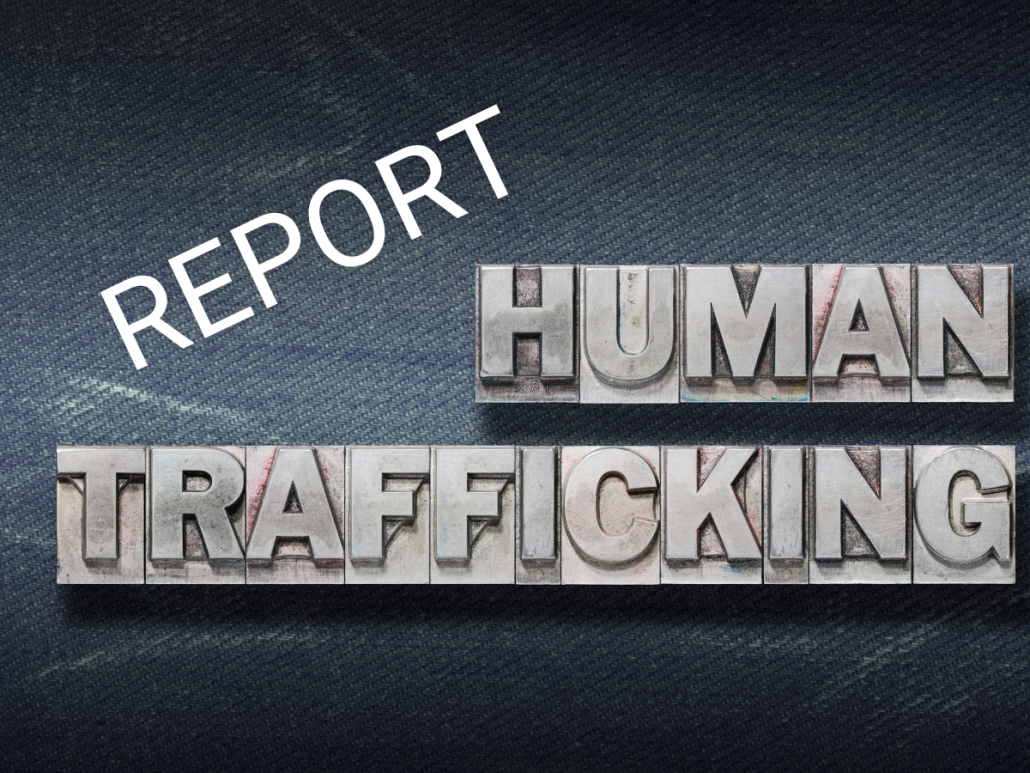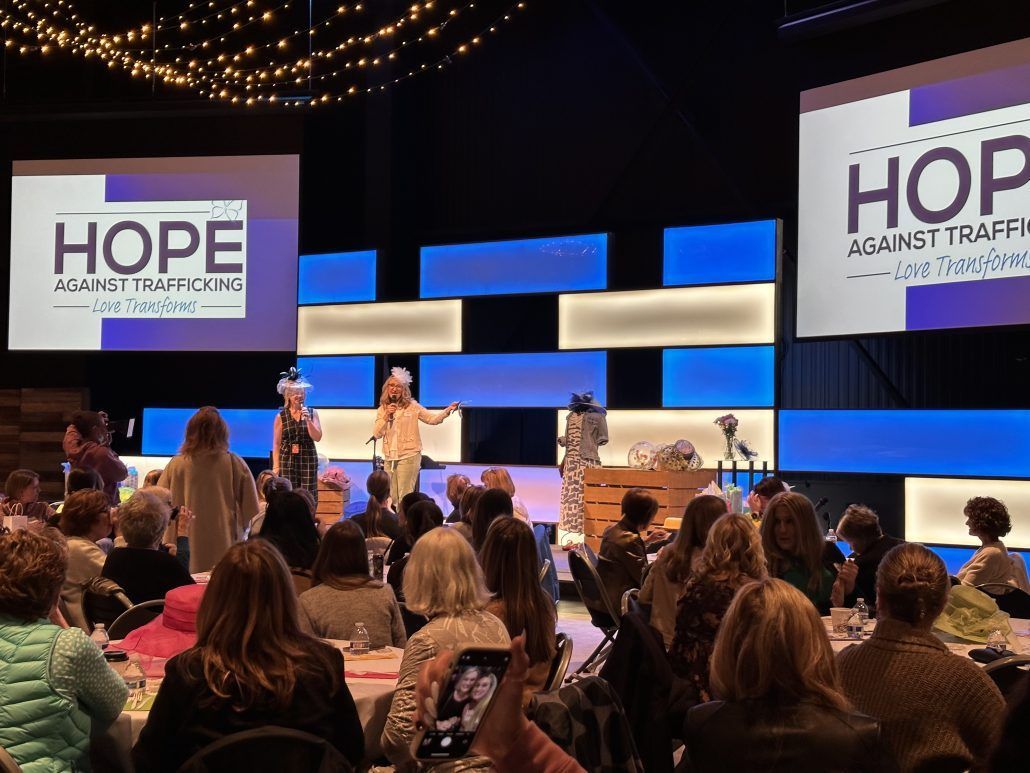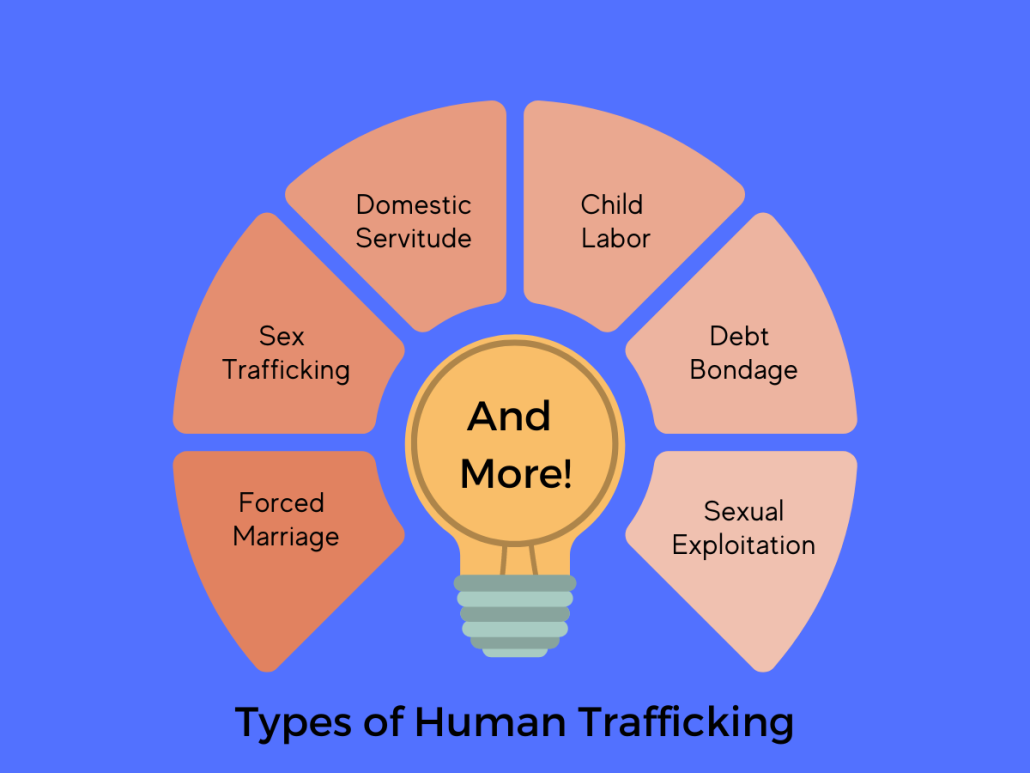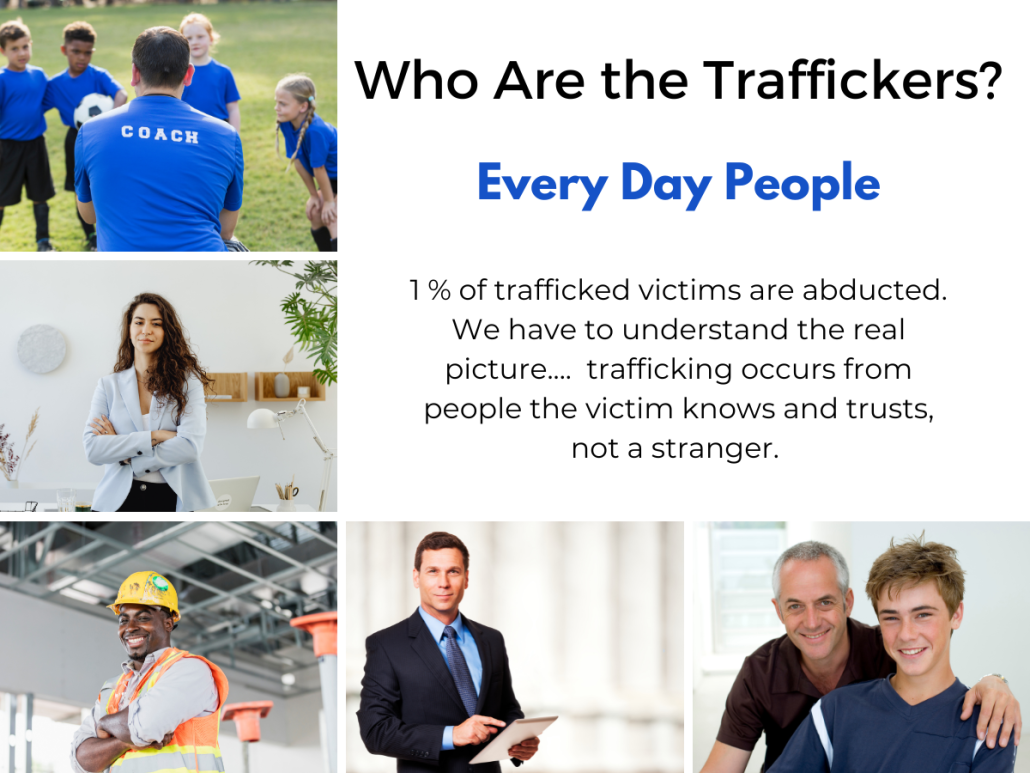How To Identify Human Trafficking Perpetrators🦋
Human trafficking stands as a grim and prevalent issue, posing significant challenges globally and right here in our own communities.
At its core, human trafficking involves exploiting individuals for labor or sex against their will, leveraging threats, manipulation, and violence.
Thugs, pimps, members of mafias and gangs exploit this dark trade for profit while hiding behind masks of normalcy. Surprisingly, the perpetrators can also include people close to the victim – friends, lovers, or even family members who misuse trust to manipulate and control.
Victims often come from vulnerable segments of society – those battling poverty, lacking job security or grappling with desperation are at higher risk. Both recent immigrants and undocumented migrant workers find themselves coerced into hazardous jobs under deplorable conditions without any way out.
Children too are not spared; they become targets for both labor and sex trafficking schemes orchestrated by these criminals.
Traffickers deploy various recruitment strategies such as forming personal bonds with potential victims or enticing them through misleading job advertisements. The digital age has further broadened their reach allowing them to groom victims online before drawing them into the trap.
Recognizing the signs is crucial – living conditions that seem unusually restrictive or abusive should raise flags; so should situations where individuals live with employers under cramped spaces or have no access to their personal documents like passports.
At Hope Against Trafficking’s Residential and Education Programs , we believe education is key in combating this heinous crime. By understanding more about how traffickers operate including who they target why certain populations are more vulnerable we empower you to take action whether it’s spotting warning signs or reporting suspicious activity via hotlines like the National Human Trafficking Hotline (888-373-7888) advocating awareness within your community Every bit helps in fighting back against human trafficking Let’s make a difference together!
Key Takeaways
- Traffickers target vulnerable people like immigrants, the poor, and children. They use tricks like fake jobs or relationships to trap victims.
- Signs of trafficking include living with an employer, overcrowded spaces, physical abuse signs, holding passports by employers, underpayment, and minors in prostitution .
- You can help fight human trafficking by learning these signs and reporting suspicious activities to authorities or hotlines.
Types of Human Trafficking
Human trafficking comes in many forms, yet two stand out due to their prevalence and impact. Forced labor and sex trafficking devastate lives across the globe. Here at Hope Against Trafficking, we strive to shine a light on these dark practices.
Our mission is not just about bringing awareness; it’s about action— educating communities in Michigan and beyond on how to spot and prevent these crimes. Understanding the types of human trafficking is step one to making a difference.
Forced labor trafficking
Forced labor trafficking traps many individuals in cycle of exploitation, especially among recent immigrants and undocumented migrant workers. Most are lured into forced labor in hazardous conditions , with male laborers often finding themselves in commercial agriculture or construction sites where the risks are high and the pay is low or nonexistent.
Women are frequently compelled to work in domestic settings , hidden from public view and equally underpaid or unpaid. These victims face threats, violence, coercion, and deception that bind them to their traffickers.
Our organization educates communities about these hard truths—raising awareness on how everyday Michigan residents can spot signs of trafficking and take action against it.
By targeting vulnerable populations with focused education programs, we aim not just to inform but empower communities to break this cycle of abuse. Recognizing the exploitation in sectors close to our homes—affecting people who may live next door—is crucial for prevention efforts.
Together, we can make a difference by identifying red flags early on and providing safe reporting tips through our residential program that cater specifically to helping those caught in forced labor regain their freedom and dignity.
Sex trafficking
Sex trafficking is a severe issue where mostly women and young girls are forced to perform sexual acts against their will. This crime happens in various places, not just far from home, but potentially in local neighborhoods.
Traffickers often target minors, making them a significant part of sex trafficking victims. They lure these individuals through online grooming and misleading job ads , promising a better life or lucrative employment opportunities.
It is vital to know how to spot the signs of trafficking and understanding how traffickers operate. Our programs focus on educating communities about anti-trafficking strategies and victim protection .
By donating to our cause, you’re helping us fight against this form of human exploitation. Together, we can make Michigan safer for everyone by raising awareness and actively preventing sex trafficking before it starts.
Vulnerable Populations Targeted by Traffickers
Human Traffickers prey on those who may not have a strong support system or are facing tough times, making them easier to manipulate and exploit.
Recent immigrants
Recent immigrants find themselves in tricky spots that traffickers exploit. These new arrivals often lack resources, legal knowledge, and familiarity with local protections against abuses.
We understand these vulnerabilities well. By targeting their needs directly, we aim to fortify this group’s resilience against human trafficking. Our programs offer education on the signs of exploitation and provide support networks for those at risk.
We see every day how critical knowledge and awareness are for recent immigrants ‘ safety. Through workshops and community engagement, we spread crucial information about trafficking red flags and behavior patterns among immigrant communities .
This proactive approach empowers them to recognize potential dangers before they escalate into harmful situations. By strengthening individuals with knowledge, we’re building a safer environment for everyone in Michigan.
Undocumented migrant workers
Undocumented migrant workers find themselves in a precarious situation. Without legal documentation, they often end up in hazardous jobs such as commercial agriculture and construction sites.
Their fear of deportation keeps them from reporting abuses, making them easy targets for labor trafficking . At Hope Against Trafficking, we see firsthand the challenges these individuals face.
They work under dangerous conditions without the security of knowing they can seek help safely.
Our mission at Hope involves not just raising awareness but actively educating communities on how to spot and prevent the exploitation of undocumented workers. By understanding their vulnerabilities—such as their undocumented status and fears—we can better protect them from becoming victims of human trafficking.
Together, we can create a safer environment where everyone has the right to work without fear of abuse or exploitation.
Individuals struggling with poverty, unemployment, and desperation
Just as undocumented migrant workers face their unique challenges, poverty, unemployment, and desperation mark another group highly vulnerable to human trafficking predators . These conditions create a perfect storm for traffickers looking to exploit individuals desperate for a way out of their current situations.
We understand how poverty strips away choices, making false promises of employment or better opportunities seem like lifelines.
At Hope, we are deeply committed to breaking this cycle of vulnerability by raising awareness about the signs of human trafficking and providing education on prevention strategies .
Our mission extends beyond rescue efforts; it’s about preventing exploitation before it begins by empowering communities with knowledge and resources. By understanding that traffickers prey on those in dire financial straits —using their situations against them—we can start creating environments where hope thrives over despair.
Children
Moving from the dire conditions that lead adults to become vulnerable, our focus shifts toward an equally pressing issue—children. Kids are a major target for traffickers, particularly in sex trafficking operations . More than 500,000 predators are online daily searching for vulnerable children.
Without access to resources or a strong support system, these young ones fall into the traps set by predators. We are deeply concerned about their plight and work tirelessly to protect them.
Traffickers prey on children’s innocence and exploit their trust. This is why our programs emphasize education and awareness among Michigan communities.
By teaching both children and adults how to recognize predatory behaviors and signs of someone being trafficked , we empower them against potential threats. It’s crucial for everyone to know how they can play a role in stopping this cycle of exploitation .
Traffickers use smart and often sneaky ways to lure their victims. They pretend to offer love, jobs, or a better life.
Forming relationships with victims
We know full well of the tactics that predators use to lure in their victims. One common approach is by forming relationships . These aren’t genuine bonds of friendship or love, though they often appear to be just that.
Predators play a long game, building trust and emotional dependence. They might pretend to be a loving boyfriend, a caring friend, or even act like family. This manipulation creates an emotional tie that can control victims more strongly than any physical chains.
Victims find themselves brainwashed, convinced they owe something to these deceivers. They think these traffickers are their only support system, blinding them from seeing the dangerous reality of their situations.
Emphasizing this strategy is precisely why education and awareness are key in spotting traffickers’ behaviors and preventing human trafficking before it starts.
Recognizing these predator identification signs is the first step to fighting back against this exploitation.
Misleading job ads
Misleading job ads often target people in desperate need of work. They promise legitimate jobs but are actually a trap for human trafficking. We see these false advertisements as a significant issue with the victims that we serve.
Our experience tells us those most vulnerable, including individuals facing financial hardships, get lured by these promises. These ads cleverly disguise the dangers behind offers of high pay or immediate start dates.
We educate communities on recognizing these misleading signals. Awareness is key to fighting back against traffickers’ recruitment strategies . Through our programs, we teach the signs that an advertisement may not be what it seems—such as vague job descriptions or requirements that seem too simple for the promised pay.
It’s crucial to question and research before taking action on a job offer that could potentially lead into a trafficking situation .
Online grooming
Traffickers are turning to the internet to trap their next victims, and they’re doing it through online grooming . This method targets minors and young adults, luring them with false promises of love, friendship, and opportunities.
They use social media platforms as their hunting ground. Predators build trust online only to manipulate it for trafficking purposes. Currently, there are more than 500,000 predators online daily searching for vulnerable children to abuse and exploit.
Our mission is to educate you on recognizing these dangers. Online groomers often start with regular conversations that soon turn into requests for personal information or inappropriate images .
They promise gifts or model contracts but it’s all a lie meant to exploit. Learning about these tactics is your first step in protecting yourself and your loved ones from becoming a statistic in human trafficking awareness reports.
Let’s stand together against trafficking by staying informed and vigilant.
Getting existing victims to recruit others
Traffickers often coerce their current victims into recruiting others. This approach allows these criminals to widen their network with minimal effort on their part. Victims, trapped in a cycle of exploitation, might reach out to friends, family, or acquaintances , unknowingly pulling them into the same tragic circumstances they’re trying to survive.
The depth of this strategy and its impact on communities across Michigan. We focus on educating residents about such recruitment methods—highlighting how someone could unintentionally become both a victim and a tool for traffickers’ schemes .
Knowledge is power; by raising awareness through our programs, we aim to break this cycle of abuse and save lives .
Perpetrators behind human trafficking come from various backgrounds…
You might be surprised to learn that anyone can become a perpetrator of human trafficking. Often, they blend into society – looking like everyday people but hiding their cruel intentions behind friendly faces.
Our nonprofit organization emphasizes the importance of recognizing these individuals by their actions and by understanding the environments they exploit.
Thugs, pimps, members of mafias and gangs
Thugs, pimps, members of mafias, and gangs play a dark role in human trafficking. They exploit people for profit at every level. These perpetrators often hide in plain sight , blending into neighborhoods and communities.
Their operations might seem sophisticated or too intertwined with legitimate businesses to be noticed easily. But make no mistake—they are orchestrating some of the most grievous crimes against human dignity.
These criminals use fear, force, and manipulation to keep their victims silent. They prey on the most vulnerable among us—children struggling with poverty, recent immigrants without support networks, and individuals desperate for employment.
By understanding their tactics, we empower ourselves to spot signs of trafficking behavior patterns early on. It’s essential we stay vigilant and report any suspicious activity to authorities immediately.
Victims' friends, lovers, or family members
Moving from the dark world of thugs and gangs, it’s even more shocking to find that human trafficking can involve those closest to victims— friends, lovers, family members, and every day people . Individuals who should be sources of trust and protection often exploit their relationships for manipulation and control.
This betrayal is one of the most painful aspects of human trafficking because it preys on the victim’s trust and love.
These supposed protectors use their influence to deceive their loved ones into situations where they’re trafficked. The promise of a better life, love, or financial support becomes a trap.
It’s crucial for communities in Michigan to recognize that perpetrators aren’t always strangers; sometimes they are hidden within our most personal connections . By staying informed about these deceptive recruitment strategies and knowing the signs of trafficking prevention can start with us.
Signs of Human Trafficking
Recognizing the signs of human trafficking is your first step toward stopping this crime. At Hope Against Trafficking, we educate you on these indicators, so you know what to look out for in your community.
Spotting human trafficking involves knowing the subtle and not-so-subtle signs that something isn’t right. Victims might live with their employer or show signs of physical abuse – red flags we teach you to notice.
They could be cramped into small living spaces, appear fearful or anxious, or never seem to have control over their money or identification documents . Minors involved in commercial sex acts are a clear signal as well.
We stress how crucial it is for Michigan residents like you to stay alert. By understanding these signals — from poor living conditions to unusual work hours and beyond — you’ll become an invaluable part of the fight against trafficking.
To really make a difference, though, action is key . If you suspect someone is a victim of trafficking.
Living with employer
Living with an employer may seem like a convenient setup for some jobs, but it’s a red flag in identifying potential human trafficking. This living arrangement is often not a choice for victims but a method used by traffickers to maintain control and monitor their movements closely.
Victims find themselves unable to leave, trapped under the watchful eye of those exploiting them.
Understanding these signs is crucial in fighting against human trafficking. By educating Michigan residents on what to look out for, such as restricted freedom of movement or living conditions that seem controlled by the employer, we empower you to spot and report these situations.
Awareness and action are powerful tools in disrupting the cycle of exploitation .
Cramped living conditions
Moving from the distressing scenario where individuals live with their employer, we delve into another alarming sign of human trafficking – cramped living conditions . Victims often find themselves in tight, overcrowded spaces that barely meet basic living standards.
These squalid environments act as a tool for traffickers to further degrade and control their victims. Imagine multiple people crammed into a single room, lacking privacy and freedom.
It’s not just uncomfortable; it’s a methodical strategy used by perpetrators to break spirits and maintain dominance.
We recognize these red flags and are committed to shining a light on such atrocities. By educating our communities about these signs, we empower you to spot trouble and take action.
Overcrowded living quarters should raise immediate concern – they’re far from normal situations but are unfortunately commonplace in the hidden world of trafficking.
Physical abuse
Just as cramped living conditions are a red flag, physical abuse is another critical sign of human trafficking to look out for. We work diligently to educate our communities about the importance of noticing these indications.
Victims may show unexplained injuries or signs that suggest restraint—bruises in unusual places, cuts, or burns. These are not just accidents; they’re deliberate actions by perpetrators to intimidate and control their victims.
Physical abuse is a powerful tool traffickers use to maintain power over those they exploit. Recognizing these trafficking signs can be the first step towards intervention and support.
Our programs focus on raising awareness so you know what to look for and how to help. It’s crucial to understand that every bruise tells a story—a story of someone potentially trapped in an abusive situation begging for notice and rescue.
Passport held by an employer
If an employer holds onto a worker’s passport , it’s a big red flag for human trafficking . This tactic stops victims from leaving or seeking help . It’s especially harmful to immigrant workers who might not know their rights in a new country.
This as a clear sign of control and manipulation used by traffickers .
Educating our communities on how holding someone’s passport is illegal and immoral. We provide resources and support to those affected. Our goal is to empower everyone with knowledge so they can spot these signs and take action against human trafficking.
Underpayment
Underpayment is a common tactic traffickers use to keep victims under their control. Victims often receive little or no pay for their work, making it hard for them to leave or seek help.
We often see financial exploitation as a key component of human trafficking. This strategy abuses the victim’s labor and strips away their dignity and independence.
Recognizing signs of underpayment in potential trafficking situations. Knowing these signs can empower you to take action and offer support to those in need.
Our programs aim to raise awareness about the realities of human trafficking, including how traffickers exploit individuals financially . By understanding this, we can fight against trafficking together.
Minors engaged in prostitution
Shifting from the harsh reality of underpayment, minors engaged in prostitution represent a deeply troubling aspect of sex trafficking. These young victims are often manipulated or forced into situations that exploit their vulnerability.
These cases signify more than just illegal activity; they highlight severe exploitation and abuse . Minors involved in such dire circumstances usually don’t choose this path but are thrust into it by traffickers looking to profit at the expense of innocence.
Our education and awareness programs are aimed specifically at preventing this form of human trafficking. By supporting our cause, you’re helping to shine a light on these hidden atrocities and provide avenues for rescue and recovery for underage victims.
Every donation goes toward breaking the cycle of exploitation and offers hope for a new beginning for those most vulnerable among us—children caught in the web of sex trafficking.
Reporting Suspected Cases of Human Trafficking

If you suspect someone is a victim of human trafficking, call the National Human Trafficking Hotline at 888-373-7888 immediately. Your call can save lives and bring perpetrators to justice.
We believe in empowering our community with knowledge to recognize and report suspected human trafficking activities. Every tip helps, and your vigilance can make a real difference in combating this issue.
Keep learning and stay informed about how to protect those who are most vulnerable among us.
National Human Trafficking Hotline (888-373-7888)
If you suspect someone is a victim of human trafficking, call the National Human Trafficking Hotline at 888-373-7888 immediately. Your call can save lives and bring perpetrators to justice.
We believe in empowering our community with the knowledge to recognize and report suspected human trafficking activities. Every tip helps, and your vigilance can make a real difference in combating this issue.
Keep learning and stay informed about how to protect those who are most vulnerable among us.
You can play a crucial role in fighting human trafficking. The National Human Trafficking Hotline at 888-373-7888 operates 24/7, providing confidential support for those who suspect cases of trafficking.
Calling this hotline is a straightforward way for you to report signs of forced labor and sex trafficking. Trained professionals on the other end offer guidance and take steps to ensure safety and support for victims .
Hope Against Trafficking supports this vital resource as part of our efforts to educate communities and raise awareness about human trafficking in Michigan. Your donations help us keep these educational programs running, empowering more people to recognize the signs of trafficking and know exactly what to do if they come across it.
Every call made could be saving someone’s life, showing just how much power lies in being informed and ready to act against traffickers.
Educating Communities

It is crucial to educate communities about the dangers and signs of human trafficking. Through our Residential and Education Programs, we equip people with knowledge and tools to spot and stop this crime in their neighborhoods.
Hope Against Trafficking's Residential and Education Programs
We provide essential support for female victims of human trafficking. We are located in Pontiac, Michigan and serve women from all over the United States. Our comprehensive programs are crafted to offer a safe space where survivors can heal and grow.
We focus on residential care , ensuring that every individual has a place to call home as they work toward reclaiming their lives. Education is another cornerstone of our mission—we empower survivors with knowledge and skills to help them build a new future.
Our team works tirelessly to create environments where healing and learning go hand in hand. Survivors gain access to various resources, including job training programs that prepare them for successful employment as they move through our program.
This dual approach aids in recovery and plays a critical role in preventing re-trafficking by equipping individuals with the tools needed for independent living. Through your donations, you directly contribute to making these life-changing services possible for those looking to escape the cycle of exploitation and start anew.
Conclusion
Identifying human trafficking perpetrators is key to stopping this crime. At Hope Against Trafficking, we show you how to spot the signs and take action. Learning about traffickers’ methods helps us protect vulnerable communities together.
Every report counts—contacting the National Human Trafficking Hotline can save lives. By educating ourselves and others, we make a stronger stand against exploitation . Join hands with us to spread awareness and create safer spaces for everyone.
Together We Can Bring HOPE Against Trafficking
FAQs
Look out for people who seem overly controlling or secretive about their activities, especially if they’re frequently in the company of vulnerable individuals.
Yes, some businesses can indeed be fronts for human trafficking operations, so stay alert to any establishment that seems odd or secretive.
They often use social media and websites to lure victims with fake promises of jobs, relationships, or a better life.
No! While women and children are commonly targeted, men can also fall victim to human trafficking schemes.
If you have suspicions, it’s crucial not to confront them directly – instead, report your concerns to local law enforcement or a trusted anti-trafficking organization immediately. Call 911 or The National Human Trafficking Hotline at 888-373-7888.
The post How To Identify Human Trafficking Perpetrators appeared first on Hope Against Trafficking.






